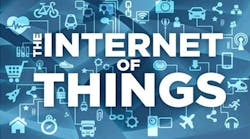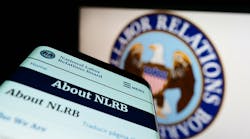While "revolution" might be a strong word for the new world of the Internet of Things (IoT), it certainly seems that everyone is talking about the dawning of a new age. Some would argue that it’s really the newer version of machine to machine (M2M) communication; nevertheless it has captured the imagination of the world of data and has become an industry within itself.
With the expected explosive growth of this industry comes the need for workers who are able to make sense of the data generated by the connectivity of machines (and devices that can be equipped with sensors).
Do we have enough developers, coders and hardware professionals with the requisite Big Data knowledge? Not really, according to a study by McKinsey & Company. By 2018, the U.S. alone could face a shortage of 140,000 to 190,000 people with deep analytical skills as well as 1.5 million managers and analysts with the know-how to use Big Data analytics to make effective decisions.
Who will solve this problem? My money is on the business world. They will train people for these jobs of the future. The manufacturing community has done this to get the highly skilled workers they need and they, along with other companies, will do this for IoT skills.
For example, General Electric Co. says that moving its headquarters from Connecticut to Boston was due to the availability of talent in Boston, which is home to 55 colleges and universities. GE is also using its internal resources to train workers at its software center in San Ramon, Calif.
Rockwell Automation is also getting into the IoT training game and has rolled out several courses and a certification program with Cisco.
And the universities are doing their part as well. MIT, for instance, is offering an online course that aims to help professionals who want to make sure they have the skills of the future. The University of California offers a Master’s degree in data science. Carnegie Mellon and Columbia also offer programs.
Not everyone, however, sees the IoT workforce dependent on academia for its development. Robert Cohen of the Economic Strategy Institute professes that there will be new categories of jobs in this "gig economy" that don’t require formal degrees.
What concerns me is viewing the IoT workforce from the lens of the skills gap. We have heard this before and can never seem to sort it out. While there are claims of many current jobs going unfilled due to lack of proper skills, we also hear of highly skilled people, in the STEM job category, who are being laid off. This tends to point to the economics of what companies are willing to pay for these skills.
There is also the issue of re-training. While automobile production has gone up, not all of those jobs are being replaced. Couldn’t these workers be trained in the data field? Why are we so eager to always create new programs and find new workers when we have a lot of capable people who are without jobs or underemployed?
And what about those workers who haven’t had access to the tech world, whether due to gender issues or lack of opportunities based on their socio-economic status?
It is my fervent hope that this new field of technology (or business processes) will prove to be a way to put both displaced workers back to work, as well as employ those who have never entered this sector before, and provide good, high-paying jobs.
This revolution could be a way to build back our middle class and push the entire workforce higher up the economic ladder. And of course a prosperous workforce is a direct line to a robust economy.



